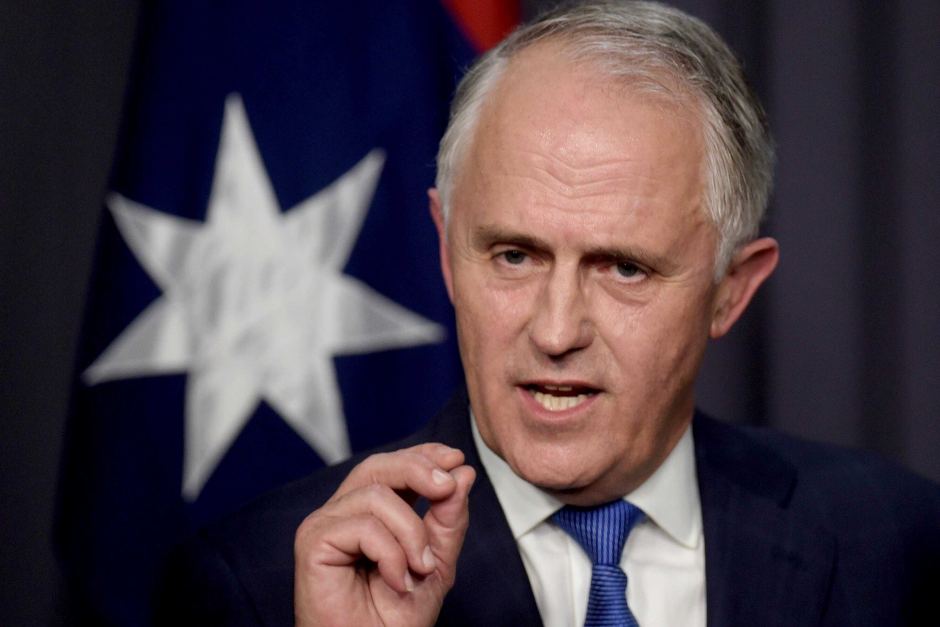- About Us
- Columns
- Letters
- Cartoons
- The Udder Limits
- Archives
- Ezy Reading Archive
- 2024 Cud Archives
- 2023 Cud Archives
- 2022 Cud Archives
- 2021 Cud Archives
- 2020 Cud Archives
- 2015-2019
- 2010-2014
- 2004-2009
 |
(Feb 2017) Retrospectivity and the Citizen Contract |
There have been many instances during election campaigns of quick witted speakers making sharp responses to hecklers. Among the most often quoted is an example from the great orator Gough Whitlam who was labor Party Prime Minister 1972 to 1975. When a heckler repeatedly asked Whitlam what Labor was going to do about abortion, Whitlam finally tired of ignoring the interjector and replied: ‘In your case, we will make it retrospective!’
When Australian governments are sworn in by the head of state, the Governor General, they make a vague commitment to serve the public good. On the other hand, when the few citizens who are forced to make a public declaration of loyalty to Australia take their oaths, they certainly do not make any commitment to blindly obey the government of the day. The relationship between governments and citizens is always changing and is modified by the behaviour of people and politicians.
At times the citizen-government contract comes under stress. In recent decades, alarm has been expressed particularly about the notion of trust. The actions of governments have caused a deal of cynicism in the community about the motives of politicians. Electors should be able to trust candidates for office for two reasons. First, members of parliaments and local government are directly answerable to voters and so should behave accountably because their tenure is brief. Secondly, all candidates should be mindful that their personal integrity is on public view. They usually claim that they recognise the honour with which they have been endowed.
In a democratic political culture both ministers and legislators face additional responsibilities. They need to behave with moderation and to show respect for the people who are in the final analysis their employers. Occasional aberrations such as the rorting of travel allowances strain the relationship but should not damage it beyond repair.
An important principle that has been recognised by true democrats on both sides of the partisan divide in Australia is that retrospectivity should be considered only as a desperate last resort. This applies equally to parliamentary legislation and to delegated regulations issued by ministers and bureaucrats. By all means where previous government actions have created disadvantage for some people, it is acceptable that compensation be backdated. This is a simple matter of natural justice which should not be denied by legsislative impediments such as a statute of limitations.
On the other hand, retrospective action can make past actions illegal and thereby create criminals. It is likely that an innate sense of unease about retrospectivity is part of the citizen outrage being expressed in the USA about President Trump’s decision to block the entry of approved refugees. Here, it appears that the disgust with the way that Centrelink has turned on welfare recipients is partly attributable to the disdain the Turnbull government is showing for the principle that retrospectivity should not be used against vulnerable people.
Anyone who has had dealings with Centrelink must realise that the organisation’s ways are mysterious. No-one could reasonably be expected to have such a thorough understanding of Centrelink’s operations that they could be expected to point it out should they think they were being overpaid. Indeed, Centrelink sometimes corrects balances over two or more payments, and the welfare recipient has no option but to trust Centrelink’s accounting practices. This trust has been repaid in very bitter manner by the bureaucracy then penalising people for accepting its methods.
Most Australians have been educated to accept that shopkeepers are human. Most of us think that if we are given the wrong change in a retail transaction, we should point this out to the shop attendant. Sometimes this works to our advantage, sometimes not but justice is served and the fragile bond of trust is maintained. On the other hand, if we walked out of a shop pocketing change we would not find it acceptable should the shopkeeper run after us to claim that they had made an error in giving us change. We expect that if the retailer makes a mistake, then they should accept the consequences and learn from the experience. This is what we all do in the daily course of our lives.
Neither the Turnbull Government generally nor any of its agencies such as Centrelink should be immune from accepting responsibility for its errors. By doing so, government provides a very poor example for the general community. A good deal has been written about leadership and at times its apparent lack has been criticised. But leadership is always there, subtly inviting people to follow.
Politicians and bureaucrats should accept that they have a tacit contract with the people whose lives they so profoundly affect. When they blame the people for their own shortcomings, retrospectively make people into criminals, pursue them for debt recovery and focus their attention on the most vulnerable members of society, they threaten the long term viability of political trust. They are defaulting on the most basic contract of democracy. This vandalism must stop.
A former academic, Tony Smith has written extensively on a wide range of subjects as diverse as folk music and foreign policy issues in the Australian Review of Public Affairs, the Journal of Australian Studies Review of Books, Overland, the Australian Quarterly, Eureka Street, Online Opinion and Unleashed.
